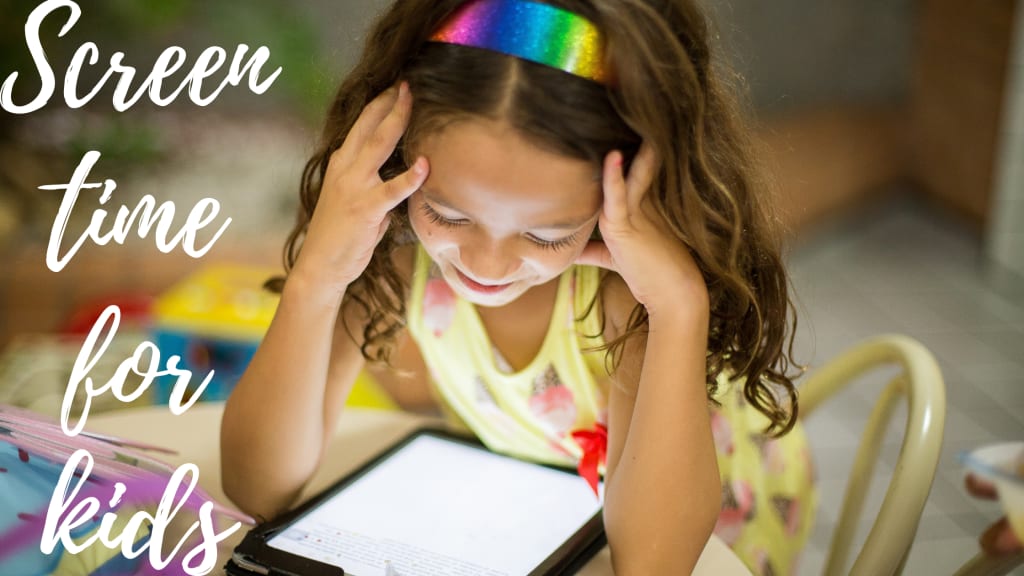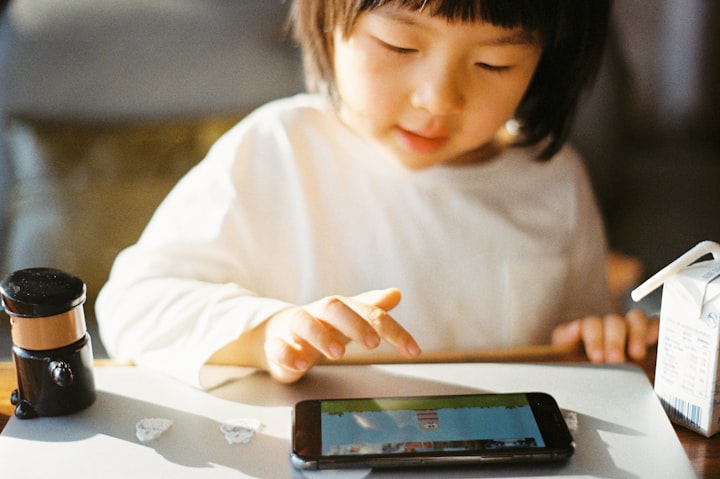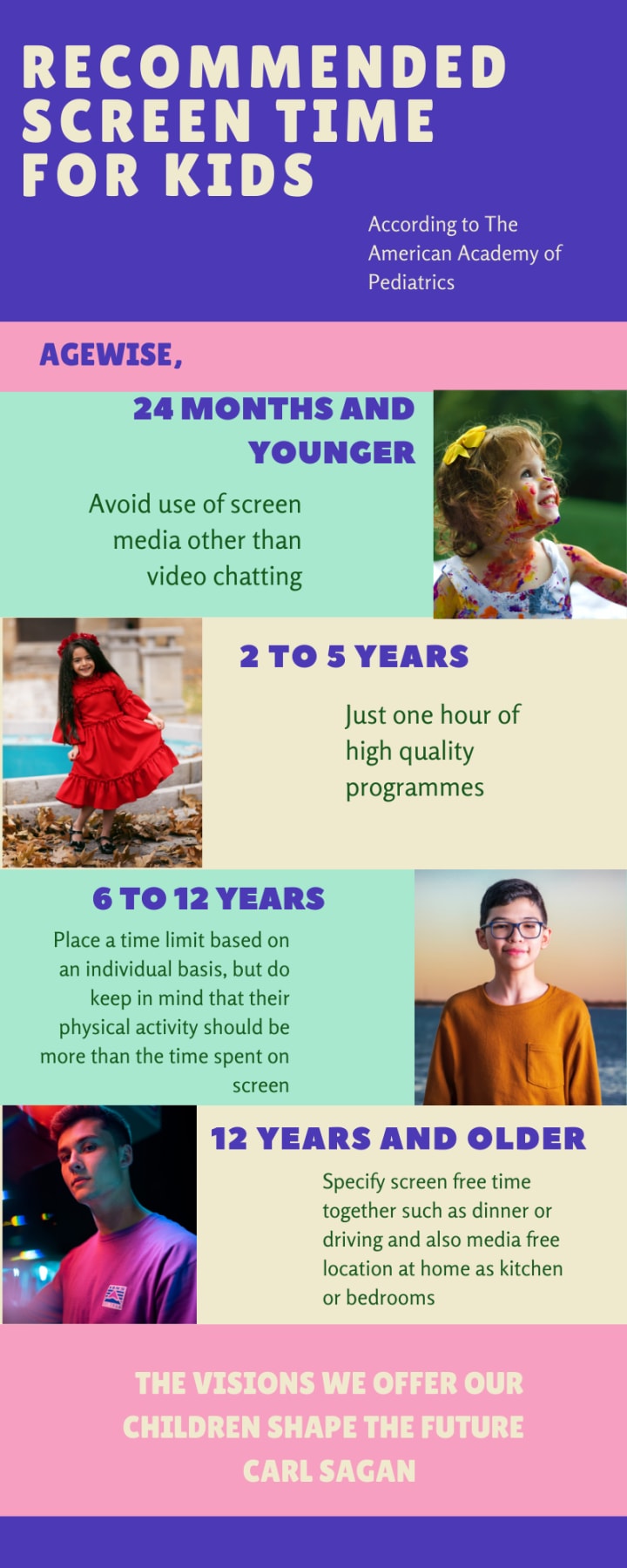
Sometimes I wonder what my childhood would have been had I been born in today's times. I guess I would also be caged behind my tablet, smartphone, gaming console or television.
Technological advancements have made our lives comfortable, now we own all kinds of gadgets. According to a study conducted by common sense media, nearly all kids aged 8 and younger in America have their own tablet and they spend 2.25 hours a day on an average.

Excessive Screen time hampers child’s development by narrowing their focus of interest. Children who spend more than 2 hours a day on their devices are more likely to score less in language and thinking ability tests.
And who spend more than 7 hours a day can experience thinning of the brain's cortex responsible for critical thinking and reasoning. (National Institute of Health)
How does a child's Mind Develop?

When a child plays with toys it fosters imagination and creativity, exploring outdoors and playing with other kids develops appropriate social skills.
Most kids brains development happens in the first 2 years, under the age of 2 years a child learns more from an adult than compared to a video or any other kind of programme. They learn from their environment and imitate what adults are doing.
Language development happens between 1.5 to 3 years of age, best when engaging and interacting with adults who are talking and playing with them.

Talking with children in a reciprocating way is extremely important for the development of language and social interaction, it’s that back and forth conversation and facial expression that helps in language development.
If exposed to excessive screen time their ability to learn from their surroundings will be hampered which will lead to “tunnel vision” and detrimental to overall development of the child.
How much screen time is appropriate for a healthy mind?
According to The American Academy of Pediatrics (aap)
Kids upto the age of 24 months should not be allowed any screen time except video chatting with family.
For 2 to 5 Years of age just one hour of high quality of programmes, which involves movements, stories and music should be allowed.
For 6 to 12 Years of age place a time limit based on an individual basis, but do keep in mind that their physical activity should be more than the time spent on screen.
For 12 Years and older, specify screen free time together such as dinner or driving and also media free location at home as kitchen or bedrooms.

Quality of media is far more important than the amount of time spent.
Harmful Effects of Excessive Screen Time
According to a study involving 208 infants aged 6 to 12 months experienced a decrease in sleep time by 28 minutes when exposed to evening screen time (After 7 PM).
After the sun sets our body secretes sleep hormone melatonin, which helps in falling asleep, but due to constant exposure of blue light from screen, it hampers our bodies ability to secrete melatonin which further delays sleep.

Excessive screen time and sleep deprivation may lead to obesity. Increased food intake and minimal physical activity appears to be the main mechanism by which insufficient sleep results in weight gain.
Irregular sleep schedule, shorter duration of sleep, loss of social skills and violence in some cases are some ill effects of excessive screen time.
What should be done?

In case of younger kids it's important that you watch with them and explain what’s happening, this automatically increases the quality of content and also kids grab more as compared to passive watching.
Limiting your own screen usage can be very helpful, kids learn from their adults by imitating them. This will also give you some spare time which you can spend with them.
Bed time, Meal time and Family time should be screen free. Try to specify different zones in home where no screen time is allowed.
Sleep, nutrition and exercise should be emphasised.
The Bottom line
Pay a conscious attention on how much time your child spend on screen and if excessive, try to set some ground rules together before your child gets caged behind screen.






Comments
There are no comments for this story
Be the first to respond and start the conversation.